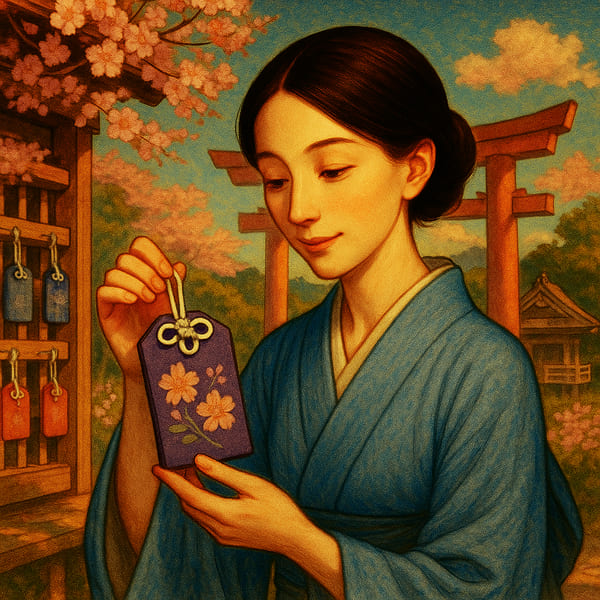Omamori: Discover Japan’s Sacred Charms for Protection and Blessings

Contents
Tucked inside a silk pouch, a silent prayer travels with you—offering protection, hope, and connection to something greater.
Omamori, Japan’s traditional spiritual amulets, are more than just souvenirs. Sold at Shinto shrines and Buddhist temples, these beautifully crafted charms are believed to shield you from harm or guide you toward goals like health, love, or success.
But how do you choose one? What’s really inside? And is there a right way to carry or return them? In this guide, we’ll explore the history, types, etiquette, and deeper meaning of omamori—so you can appreciate not just their beauty, but the centuries of belief and reverence they hold.
A Brief History of Omamori: From Ancient Rituals to Everyday Life
The origins of omamori date back to ancient Japanese religious practices, blending elements of Shinto and Buddhism. Early forms, known as gofu, were carried by nobility during the Heian period (794–1185) as talismans to ward off evil and misfortune.
Over time, the practice of carrying protective charms expanded to the general public. Today, omamori are widely available at major shrines and temples across Japan, making them one of the most accessible spiritual items for locals and tourists alike.
What’s Inside an Omamori? Structure and Sacred Contents
An omamori is typically a small, beautifully embroidered cloth pouch sealed to preserve the sacred item within. This sacred core often includes a written prayer, wooden talisman (ofuda), or a Buddhist scripture believed to channel divine power.
Each omamori is labeled with its intended blessing—such as “traffic safety,” “academic achievement,” or “good health.” Designs may reflect the season, regional traditions, or the identity of the shrine, making them both spiritually meaningful and artistically crafted.
How to Use Omamori: Etiquette and Common Practices
There’s no need for a special ritual—just keep the omamori with you in your wallet, car, bag, or home. Many Japanese people carry omamori daily for continued protection and peace of mind.
One important custom: do not open the pouch. It’s believed that opening it weakens its spiritual power. While not a strict rule, this tradition reflects the cultural value of respect and reverence toward unseen forces.
When to Replace and Return Omamori
Although omamori don’t technically expire, it is customary to replace them once a year. This act is symbolic—expressing thanks for past protection and setting intentions for the year ahead.
Old omamori should be returned to a shrine or temple, where they are respectfully disposed of through a cleansing fire ritual called otakiage. This practice honors the charm’s spiritual energy and closes the prayer with gratitude.